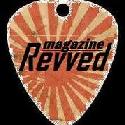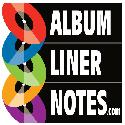
Inspiration is a funny thing. Some guitarists, like Jimi Hendrix, claim their music comes to them in waves, as if you’re being struck by a lightning bolt right out of thin air. Others, like Buddy Guy, Carlos Santana and Robben Ford, play from the heart and not the head. It’s instinctual and not something that’s tangible or can be reasoned out. A true musician really has no method for what he plays, just a passion to share and an ability to communicate clearly through music.

Not since the late Stevie Ray Vaughan has anyone burned up the blues like Kenny Wayne Shepherd. The “Tornado” from Shreveport, LA, who has, with his long blonde hair and Stratocaster in tow, rekindled blues in the 90s much like Clapton, Page and Beck did in the late 60s and 70s. With his own band, as well as the additional support of Double Trouble, Kenny Wayne simmers, steams and rocks the blues so as to attract a crowd of serious concert-going fanatics. His unadorned guitar lines alternately caress and blister, easily whipping the unassuming into a mass frenzy. His sophomore album, Trouble Is…, continues the high-octane deluge he started on Ledbetter Heights by echoing the influences of B.B. King and Jimi Hendrix, all the while updating the blues for a new generation of guitar fans.

Americans like their guitar-based blues-rock to have some sort of geographical identification. Whether it’s New York’s underground, Los Angeles’ club scene, the Jersey shore or even Chicago’s house music–these are all places that can easily be located on the map. Lately, though, bluesy guitar rock has started pouring out of places not normally associated with those that are part of the cultural mainstream, cities like Seattle, Athens, GA, and Shreveport, LA, to name a few. The latter of which, to be sure, is an unlikely place to find any type of major trend (that is, unless you consider places like the Mall Of America a relevant and major trend in today’s society.) In general, though, most guitarists tend to think of the traditional places like LA, New York or even Austin as the strongholds of good old, guitar-driven, blues-rock.















 Welcome to Michael D. Vogel’s online portfolio. I am a Los Angeles-based music journalist/content creator, and self-professed music-fanatic/radio-aholic. With more than 20 years of experience in multiple facets of the music industry including; music programming/air talent for terrestrial and internet radio as well as record label artist promotion, I have a finger on the pulse of what's new and under the radar in the emerging music scene. Areas of specific expertise include, but not limited to: rock (heritage, mainstream, heavy metal/hard rock and alternative), pop and adult contemporary, as well as radio, pop culture, sports, exercise and politics. I am applying my passion for music as a freelance writer for the Examiner as National Music Examiner (Examiner.com) in addition to West Coast Editor for FreeGotham (FreeGotham.com). Find me at michael@vogelism.com.
Welcome to Michael D. Vogel’s online portfolio. I am a Los Angeles-based music journalist/content creator, and self-professed music-fanatic/radio-aholic. With more than 20 years of experience in multiple facets of the music industry including; music programming/air talent for terrestrial and internet radio as well as record label artist promotion, I have a finger on the pulse of what's new and under the radar in the emerging music scene. Areas of specific expertise include, but not limited to: rock (heritage, mainstream, heavy metal/hard rock and alternative), pop and adult contemporary, as well as radio, pop culture, sports, exercise and politics. I am applying my passion for music as a freelance writer for the Examiner as National Music Examiner (Examiner.com) in addition to West Coast Editor for FreeGotham (FreeGotham.com). Find me at michael@vogelism.com. 